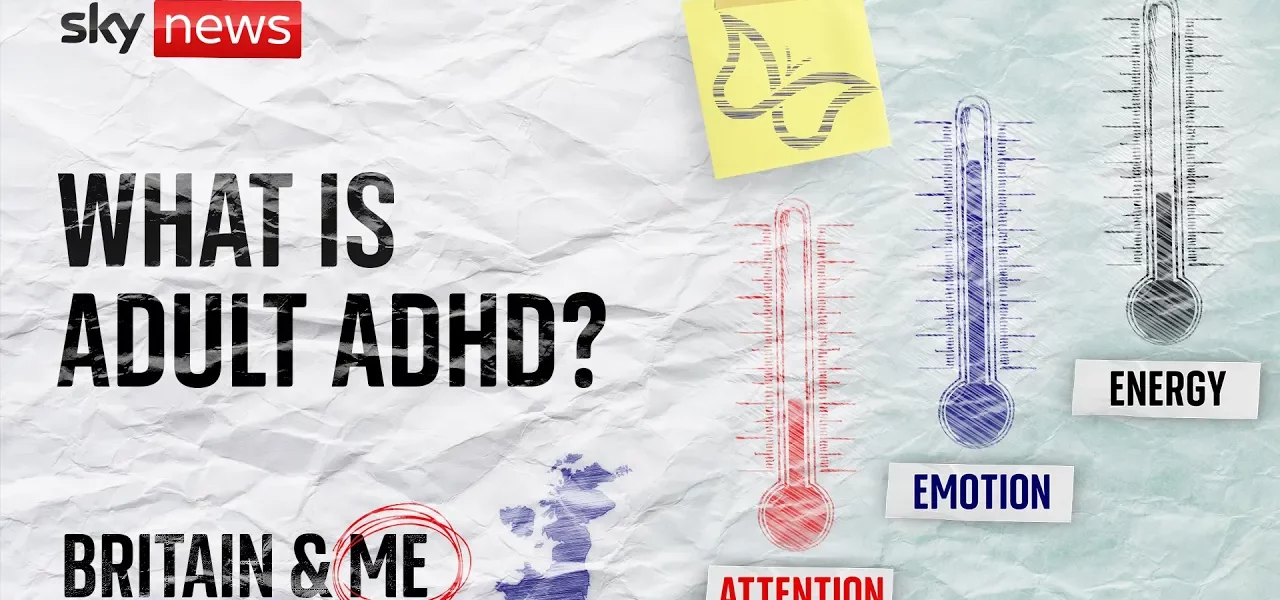Understanding ADHD: A Deep Dive into the Condition

This article provides a comprehensive overview of Attention Deficit Hyperactivity Disorder (ADHD), exploring its symptoms, impacts, and the importance of awareness and diagnosis in both children and adults.
Introduction
Attention Deficit Hyperactivity Disorder (ADHD) is often misunderstood, with many people viewing it through a narrow lens that fails to capture its complexity. From early childhood struggles to adult challenges, ADHD can significantly affect one’s life. In this article, we will delve into the realities of living with ADHD, the misconceptions surrounding it, and the urgent need for increased awareness and understanding of this condition.
The Reality of Living with ADHD
For many individuals, ADHD is not just a childhood diagnosis; it continues to affect their experiences well into adulthood. The symptoms can often manifest in various ways, leading to feelings of being overwhelmed, trapped, or misunderstood.
Early Signs and Misconceptions
ADHD often presents itself in early childhood, but many adults may not recognize their own symptoms due to societal stereotypes. Common misconceptions include:
- Believing that ADHD only affects hyperactive boys.
- Thinking individuals with ADHD lack attention entirely, rather than having difficulty regulating it.
- Assuming that ADHD is merely a phase that can be outgrown.
Living with ADHD
Individuals with ADHD often describe their experiences as a constant battle with attention regulation, emotional control, and energy levels. Some specific challenges include:
- Struggling to maintain focus on tasks, leading to unfinished projects.
- Experiencing emotional dysregulation, resulting in intense mood swings.
- Feeling overwhelmed in social situations, contributing to isolation.
Diagnosis and Awareness
Understanding ADHD is crucial for effective diagnosis and treatment. Unfortunately, many adults remain undiagnosed due to a lack of awareness and understanding among healthcare professionals.
The Importance of Early Diagnosis
Early diagnosis can significantly improve the quality of life for individuals with ADHD. Key points include:
- ADHD can lead to severe consequences if left untreated, including increased risk of suicide.
- Many adults discover their diagnosis only after significant life challenges.
- Awareness campaigns are essential in changing perceptions and encouraging people to seek help.
The Impact of COVID-19
The pandemic highlighted the struggles faced by individuals with ADHD. Many reported that their coping mechanisms were disrupted, leading to increased symptoms and the need for medication. Statistics indicate:
- A 146% increase in ADHD medication prescriptions among 30 to 34-year-olds during the pandemic.
- Many adults were diagnosed for the first time as their symptoms became more pronounced.
Treatment Options and Realities
Treatment for ADHD varies widely among individuals, and while medication can help, it is not a panacea. Understanding the various treatment options is essential.
Medication
ADHD medication can provide significant relief for many, but it is not without its challenges:
- Initial doses can lead to profound changes in focus and clarity.
- Side effects such as irritability and mood swings can occur as medication wears off.
- There is a current shortage of ADHD medication in the UK, complicating access for those in need.
Non-Medication Approaches
In addition to medication, various strategies can help manage ADHD symptoms:
- Cognitive Behavioral Therapy (CBT) to develop coping strategies.
- Mindfulness practices to enhance focus and emotional regulation.
- Support groups for sharing experiences and strategies with others.
Conclusion
ADHD is a complex and often misunderstood condition that impacts millions of individuals. By fostering a better understanding of ADHD, we can reduce stigma, improve diagnosis rates, and ultimately support those living with the condition. If you or someone you know is struggling with ADHD, consider reaching out for help. Remember, awareness and understanding are the first steps toward managing this neurodevelopmental condition effectively.
For more information and support regarding ADHD, please explore our related articles or consider joining a support group in your area.
“`




